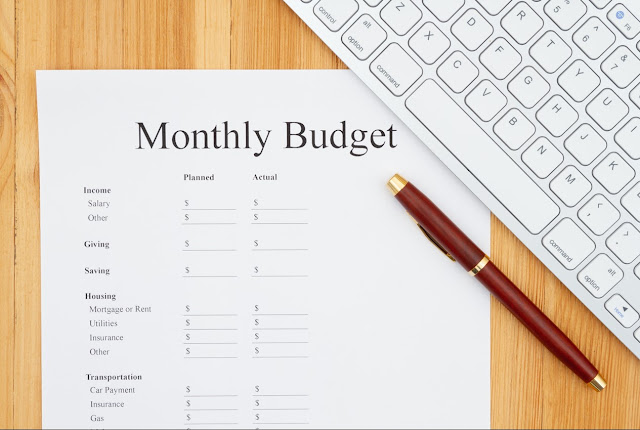Saving for retirement while enjoying life today might seem like a challenging balancing act, but it’s achievable with careful planning and smart financial decisions.
Here’s how you can strike that balance effectively.
Begin by assessing your current financial standing. This step involves taking stock of your income, expenses, debts, and assets.
Create a detailed budget to track where your money goes each month. By knowing your financial situation, you can identify areas where you can cut back and save more.
Determine how much you will need for retirement. Consider factors such as your desired retirement age, life expectancy, healthcare costs, and lifestyle choices.
Setting clear, achievable goals will give you a roadmap to follow. Use retirement calculators to estimate how much you need to save each month to reach your goals.
A balanced budget allows you to allocate funds for savings and enjoyment. Start by prioritizing your needs over wants.
Allocate a specific percentage of your income to retirement savings, and then budget for discretionary spending. This way, you can enjoy activities and hobbies without jeopardizing your future.
Investing is a crucial component of retirement planning. Diversify your investment portfolio to reduce risk and maximize returns.
Consider a mix of stocks, bonds, and other investment vehicles that match your risk tolerance and retirement timeline. Regularly review and adjust your portfolio so that it aligns with your goals.
You can and should still enjoy your life while saving for retirement. Engage in activities and hobbies that bring joy without costing a fortune.
Look for low-cost or free events in your community, such as concerts, festivals, and workshops. If you have a passion for cars, consider exploring the different levels of classic car restoration, which can serve as a source of entertainment and a potential investment.
Life is unpredictable, and your financial situation may change over time. Regularly review your retirement plan and adjust as necessary.
For example, if you and your family want to take an overseas vacation this year, speak with a financial advisor about how to pay for the vacation without hurting your retirement goals. It’s possible to have fun with your family while meeting your financial objectives.
If you feel overwhelmed by retirement planning, seek professional advice. Financial advisors can provide personalized guidance based on your unique situation. They can help you create a comprehensive retirement plan, optimize your investments, and ensure you have money in your budget for entertainment and relaxation.
Keep yourself informed about financial matters and retirement planning. Read books, attend seminars, and follow reputable financial news sources.
Staying educated will empower you to make informed decisions and adapt to changes in the financial landscape. You’ll know when it’s the right time to spend more on your hobbies and when you should cut back and focus more on saving.
Learning how to save for retirement but still enjoy life today requires careful planning, disciplined budgeting, and smart financial decisions. By balancing your current needs with future goals, you can achieve a fulfilling and secure retirement.
Assess Your Current Financial Situation
Begin by assessing your current financial standing. This step involves taking stock of your income, expenses, debts, and assets.
Create a detailed budget to track where your money goes each month. By knowing your financial situation, you can identify areas where you can cut back and save more.
Set Clear Retirement Goals
Determine how much you will need for retirement. Consider factors such as your desired retirement age, life expectancy, healthcare costs, and lifestyle choices.
Setting clear, achievable goals will give you a roadmap to follow. Use retirement calculators to estimate how much you need to save each month to reach your goals.
Create a Balanced Budget
A balanced budget allows you to allocate funds for savings and enjoyment. Start by prioritizing your needs over wants.
Allocate a specific percentage of your income to retirement savings, and then budget for discretionary spending. This way, you can enjoy activities and hobbies without jeopardizing your future.
Invest Wisely
Investing is a crucial component of retirement planning. Diversify your investment portfolio to reduce risk and maximize returns.
Consider a mix of stocks, bonds, and other investment vehicles that match your risk tolerance and retirement timeline. Regularly review and adjust your portfolio so that it aligns with your goals.
Enjoy Life Within Your Means
You can and should still enjoy your life while saving for retirement. Engage in activities and hobbies that bring joy without costing a fortune.
Look for low-cost or free events in your community, such as concerts, festivals, and workshops. If you have a passion for cars, consider exploring the different levels of classic car restoration, which can serve as a source of entertainment and a potential investment.
Adjust as Needed
Life is unpredictable, and your financial situation may change over time. Regularly review your retirement plan and adjust as necessary.
For example, if you and your family want to take an overseas vacation this year, speak with a financial advisor about how to pay for the vacation without hurting your retirement goals. It’s possible to have fun with your family while meeting your financial objectives.
Seek Professional Advice
If you feel overwhelmed by retirement planning, seek professional advice. Financial advisors can provide personalized guidance based on your unique situation. They can help you create a comprehensive retirement plan, optimize your investments, and ensure you have money in your budget for entertainment and relaxation.
Stay Informed and Educated
Keep yourself informed about financial matters and retirement planning. Read books, attend seminars, and follow reputable financial news sources.
Staying educated will empower you to make informed decisions and adapt to changes in the financial landscape. You’ll know when it’s the right time to spend more on your hobbies and when you should cut back and focus more on saving.
Learning how to save for retirement but still enjoy life today requires careful planning, disciplined budgeting, and smart financial decisions. By balancing your current needs with future goals, you can achieve a fulfilling and secure retirement.



.jpg)
.jpg)












